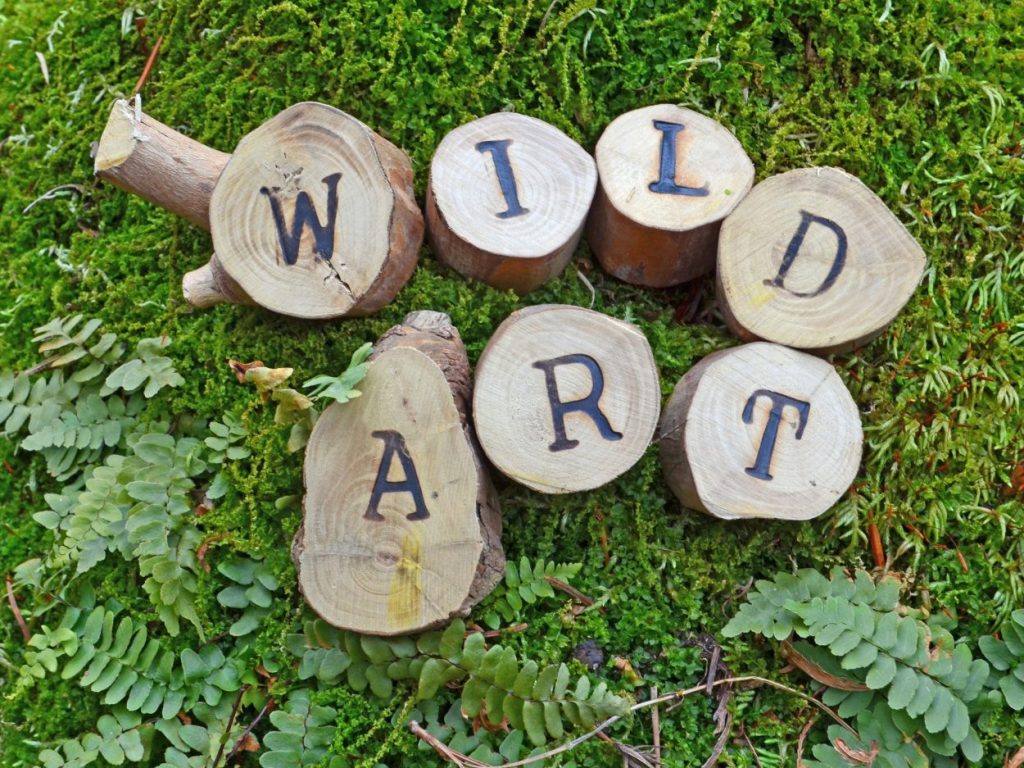Wild Art: A Journey Off-Canvas
Wild Art is Now Closed.
May 26 – October 1, 2017
9 a.m. – 5 p.m.
With Extended summer hours on Thursday nights till 9 p.m. at Flowers After 5
Richmond, Virginia’s art scene comes alive throughout Lewis Ginter Botanical Garden’s 50 acres of cultivated landscape, where regional artists entwine art and nature to spark a new way of interacting with the natural world.
Did you know one of the best botanical gardens in the United States is located only about 2 hours way from the Washington, D.C. area?
Getting to the Garden is easy and convenient! We’re just north of Richmond, Virginia, minutes from major interstates I-95, I-64 and I-295.
It’s well worth the trip. You can easily spend an entire day at the Garden: exploring the Wild Art environmental art exhibit, interacting with tropical butterflies in the Butterflies LIVE! exhibit, playing in the Children’s Garden and CWDKids Tree House; splashing in Water Play; and enjoying 50 acres of blooms like you’ve never seen. Thursday evenings June-September 14, we’re open late (’til 9 p.m.) for Flowers After 5 with live music and activities. There’s great dining and shopping, too!
In addition to the featured works of art, keep an eye out for pop-up ephemeral art made from fallen petals, leaves, sticks and stones, designed to surprise and delight and then fade with the passage of time. Enjoy digging into your creative side through the making of nature-inspired art in designated areas of the Garden.
Purchase Tickets Online Now
Art Comes Alive.
Wild Art: a Journey Off-Canvas is a collaborative community art experience inspired by nature, combining the efforts of regional artists and thousands of Garden visitors to transform the Garden into a living tapestry of natural art. The Wild Art exhibit will feature large-scale art installations made from materials found in the natural environment. Scattered throughout the Garden to prompt exploration and discovery, the multi-sensory experiences will spark new ways of interacting with the natural world and each other. Pop-up & Ephemeral Art — created by volunteers, partner groups and staff and guest artists, these works of art encourage visitors to see the natural beauty in the environment. Featured pop-up artists include Noah Scalin, Mirinda Powers Reynolds and Erling Sjovold.
Visitor as Artist.
Humble rocks, leaves, petals and sticks are transformed into awe-inspiring works of art as ephemeral art and creation stations provide something new to discover each trip, encouraging self-expression and harnessing the healing, meditative benefits of spending time in nature. Wild Art Creation Stations — allow all visitors to become a part of the exhibition, providing an opportunity for everyone to explore their wild side.
Exhibit and related activities included with Garden admission.
$13 adults
$11 seniors 55+
$8 Children (age 3-12)
Free for Children under 3
Free for Garden Members
Tickets are available at the Garden 9 a.m to 5 p.m daily, and can be bought at the door. You can also purchase tickets online (with a small convenience fee).
Scroll down to see photos and learn more about the Wild Art installations, Wild Art Instagram contest and related programming.
Planning Your Visit
Our Garden is ideally situated, just off of I-95, we are conveniently located with easy access to other nearby Richmond attractions. If you have children be sure to see Wild Art Drop in Programs for Families and Children and Top 10 tips for visiting Butterflies LIVE! with kids.
The Art Installations
Earth Healer by Edward Miller
Earth Healer depicts a female figure composed of sod and earth. Healing herbs are growing from within the figure’s cradling arms. The work shows a human connection with the earth and is part of an ongoing vision to combine the human figure with landscape and the natural world.
Arbor Quilt by Cathy Vaughn
Like quilting, gardening is often a piece by piece endeavor. We stitch together plants that have meaning for us, shared from a friend’s garden or collected from a plant sale, to wrap our homes in the beauty of nature. Using the Log Cabin quilt pattern, we will stitch together a vertical tapestry of plants and mosses.
A Butterfly’s Journey by Cathy Vaughn
The butterfly is a rich symbol for change, diversity, and interdependence. Explore this walking meditation as part of your journey with nature in the wattle-woven copper and sapling walls of the Butterfly’s Journey.
Gonbad by Leila Ehtesham
Gonbad is a traditional Persian-style dome made from untraditional materials. Ehtesham looked to ancient papermaking techniques and modern paper consumption for inspiration and harvested grasses from Lewis Ginter Botanical Garden to make the bricks.
The Music House by John M. Holland
The Music House will draw on children’s natural inquisitiveness to transform Everyone’s House in the Children’s Garden into a large multi-sensory sound sculpture. Its primary medium will be a material often viewed as a nuisance in the local ecology, bamboo. The Music House, which will also incorporate piano parts, provides opportunity for interaction and collaboration by Garden guests and can be explored and played by Garden guests of all ages.
Turtle Island by Colleen Hall
Powerful, patient, and wise, turtles have a mythical significance around the world and across diverse cultures. Surprisingly, the humble turtle’s symbolism parallels the iconic tree symbol in creation stories and folklore from Native Americans to Indian mythology. This living sculpture invites guests to explore the vast significance of the turtle, including its association with the environmental movement. The persistence, power, and patience the turtle represents will indeed be needed to protect and nurture our natural world.
Hidden Community by Jeffrey Hall
At first glance, this bamboo sculpture near the community garden greets the viewer with 24, 8-foot-tall, vertical, bamboo poles arranged forming a cube. However, with a bit of investigation, an image (and a clue) will reveal itself for all to see.
Tree House by Jeffrey Hall
Like many obstacles, this imposing structure made from trees has a playful side. Let your childlike perspective guide you to a different view.
Code Playground by Jeffrey Hall
Hop, skip, and decode in the code playground. Practice your balancing skills while cracking this puzzle.
Walking Sticks by Susann Whittier
Walking Sticks allows for a new interpretation of how plants exist in our natural environment, giving something that most people discard a new life. The limbs are transformed and reconfigured but not tamed or edited too much, to allow for freedom and expression of the limbs.
Nonprofit Community Partners
Art 180 Teen Leadership Council: installation exploring themes of environmental justice, identity, place
Art on Wheels: sand pendulum


